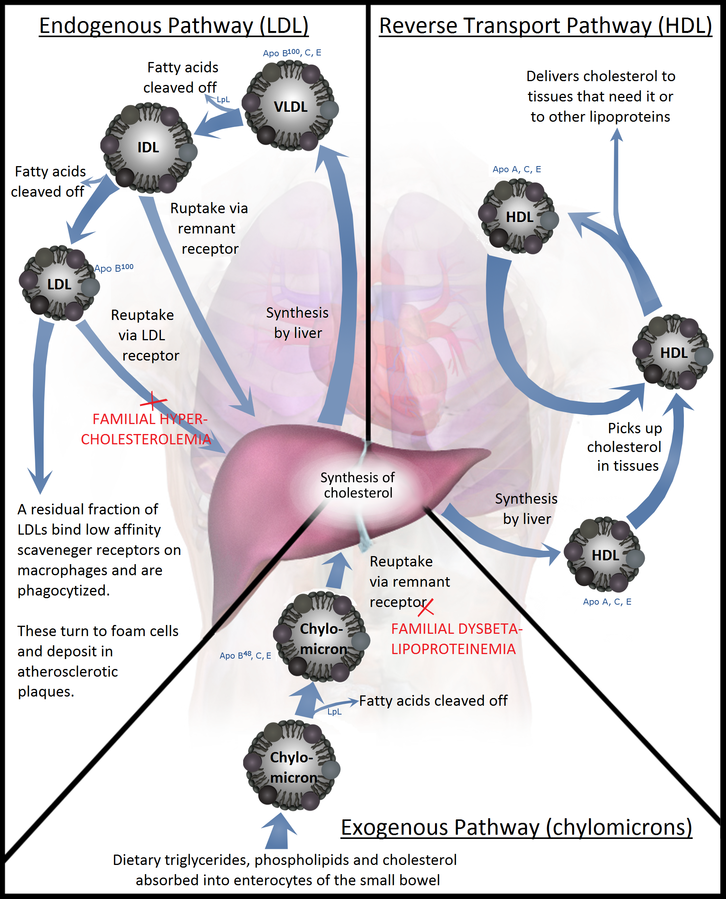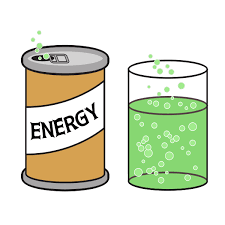INTRODUCTION
Cholesterol is a type of fat-like substance that is produced in the liver and is also obtained through animal foods. All cells rely on cholesterol as building blocks to create multiple membranes. It plays important roles in the human body, but having excessively high levels of cholesterol can be harmful to health.
Here are some key points about cholesterol in the human body:
Types of Cholesterol: Cholesterol is transported in the bloodstream by molecules called lipoproteins. There are two main types of cholesterol-carrying lipoproteins: low-density lipoprotein (LDL) and high-density lipoprotein (HDL).
a) LDL Cholesterol: LDL cholesterol is often referred to as “bad” cholesterol because high levels of LDL can lead to the buildup of plaque in the arteries, increasing the risk of heart disease.
b) HDL Cholesterol: HDL cholesterol is often referred to as “good” cholesterol because it helps remove excess cholesterol from the bloodstream, reducing the risk of heart disease.
c)VLDL:VLDL stands for very low-density lipoprotein. It is a type of lipoprotein that carries triglycerides, a form of fat, from the liver to various tissues in the body. VLDL is produced in the liver and is considered one of the three main types of lipoproteins, along with low-density lipoprotein (LDL) and high-density lipoprotein (HDL).
d)TRIGLYCERIDES:Triglycerides are a type of fat found in the human body and are the most common form of fat in our diet. They are a crucial source of energy for the body and play a significant role in metabolism
LIPIDS, LYPO PROTEINS AND CHYLOMICRONS:
Lipids are insoluble in plasma and hence cannot be transported through blood. They are transported as lipoproteins.
Lipoproteins circulate through vasculature and exist in a state of dynamic equillibrium between tissues and liver. Main function of lipoprotein is to absorb dietary fat.
Chylomicrons are produced in intestinal lumen following the absorption of digested fat . These are rich in triglycerides ,This gives cloudy appearance in serum. These are transported in blood to tissues such as skeletal muscle , fat and liver.
VLDL are rich in triglycerides , synthesised from free fatty acids formed in catabolism of chylomicrons in liver.

FUNCTIONS:
It helps in regulating membrane fluidity , acts as major source of energy in post absorptive state. Cholesterol is essential for various bodily functions, including:
1.Absorption , synthesis and transport of fat soluble vitamins.
2.Cell Structure: Cholesterol is a crucial component of cell membranes, providing stability and fluidity.
3.Hormone Production: Cholesterol is used by the body to produce important hormones such as estrogen, testosterone, and cortisol.
4.Vitamin D Synthesis: Cholesterol is converted into vitamin D in the skin when exposed to sunlight.
5.Bile Production: Cholesterol is a precursor for bile acids, which aid in the digestion and absorption of dietary fats.
6.Other biological activities such as production of prostaglandins, leukotrienes, lipoxins, prostanoids, prostacyclines, thromboxanes, gangliosides.
BLOOD TESTS :
When it comes to diagnosing and monitoring high cholesterol, several blood tests can provide valuable information. Here are the common blood tests used to assess cholesterol levels:
- a. Total Cholesterol: This measures the overall amount of cholesterol in your blood, including both LDL (bad) cholesterol and HDL (good) cholesterol.b. LDL Cholesterol: Often referred to as “bad” cholesterol, LDL cholesterol contributes to the formation of plaque in the arteries.c. HDL Cholesterol: HDL cholesterol is known as “good” cholesterol as it helps remove LDL cholesterol from the bloodstream and reduces the risk of heart disease.d. Triglycerides: Triglycerides are a type of fat found in the blood. High levels of triglycerides are associated with increased cardiovascular risk.
- Non-HDL Cholesterol: This test calculates your total cholesterol minus the HDL cholesterol. It provides information about the amount of LDL cholesterol and other non-HDL particles.
- Apolipoprotein B (apoB): This test measures the number of apolipoprotein B particles, which are the primary carriers of LDL cholesterol. It can provide a more accurate assessment of cardiovascular risk than LDL cholesterol alone.
- High Sensitivity C-Reactive Protein (hsCRP): This test measures the level of inflammation in the body. Elevated hsCRP levels may indicate an increased risk of heart disease, particularly in combination with high cholesterol levels.
- Lp(a) Lipoprotein: This test measures the level of lipoprotein(a), which is a type of LDL cholesterol that is genetically determined. High levels of Lp(a) can increase the risk of cardiovascular disease.
It’s important to note that you should consult with a healthcare professional to determine which blood tests are most appropriate for you based on your specific risk factors and medical history. They will guide you in interpreting the results and developing an appropriate treatment plan if necessary.
DIETARY SOURCES:
- Dietary Sources: Cholesterol is naturally found in animal-based foods such as meat, poultry, seafood, eggs, and dairy products. Plant-based foods do not contain cholesterol unless they are fortified.
- Balancing Cholesterol Levels: Maintaining a healthy balance of cholesterol is important. High levels of LDL cholesterol and low levels of HDL cholesterol increase the risk of heart disease. Lifestyle factors, such as diet, exercise, and not smoking, can influence cholesterol levels.
- Testing and Management: Blood tests, often called lipid panels or lipid profiles, can measure total cholesterol, LDL cholesterol, HDL cholesterol, and triglyceride levels. Lifestyle modifications, such as adopting a healthy diet and regular physical activity, are typically the first approach for managing cholesterol. In some cases, medication may be prescribed to lower cholesterol levels.
NORMAL VALUES
TRIGLYCERIDES- BELOW 150mg/dil
HDL – above 50mg/dil
LDL – below 100 mg/dil and in some cases like diabtes mellitus and vascular complications less than 70 mg/dil is advised.
VLDL- 2-30 mg/dl
PREVENTIVE MEASURES:
High cholesterol is a condition that can increase the risk of heart disease and other health problems. Fortunately, there are several preventive measures you can take to manage your cholesterol levels. Here are some strategies.
- Healthy Diet: Adopt a balanced and heart-healthy diet that includes plenty of fruits, vegetables, whole grains, and lean proteins. Limit your intake of saturated fats, trans fats, and cholesterol-rich foods. Avoid processed and fried foods.
- Low-Fat Cooking Methods: Use cooking methods such as baking, grilling, steaming, or sautéing instead of frying. Avoid using excessive amounts of butter, lard, or hydrogenated oils.
- Increase Soluble Fiber Intake: Include foods rich in soluble fiber in your diet, such as oats, legumes (beans and lentils), fruits (apples, oranges, strawberries), and vegetables (carrots, broccoli, Brussels sprouts). Soluble fiber helps reduce LDL (bad) cholesterol levels.
- Healthy Fats: Consume healthy fats in moderation, such as monounsaturated fats found in olive oil, avocados, and nuts. These fats can help improve cholesterol levels.
- : Include sources of omega-3 fatty acids in your diet, such as fatty fish (salmon, mackerel, trout), walnuts, chia seeds, and flaxseeds. Omega-3 fatty acids can help lower triglyceride levels and protect heart health.
- Reduce Alcohol Consumption: Limit your alcohol intake, as excessive alcohol consumption can raise cholesterol levels and contribute to other health problems.
- Regular Exercise: Engage in regular physical activity to help maintain a healthy weight and improve cholesterol levels. Aim for at least 150 minutes of moderate-intensity aerobic exercise per week, along with strength training exercises.
- Quit Smoking: If you smoke, quit smoking. Smoking lowers your HDL (good) cholesterol and damages blood vessels, increasing the risk of heart disease.
- Maintain a Healthy Weight: Losing excess weight can help improve cholesterol levels. Aim for a healthy body mass index (BMI) by combining a nutritious diet and regular exercise.
- Regular Check-ups: Schedule regular check-ups with your healthcare provider to monitor your cholesterol levels and discuss any necessary treatments or lifestyle modifications.
Remember, these preventive measures may not be suitable for everyone, and it’s essential to consult with a healthcare professional for personalized advice based on your specific health situation.





